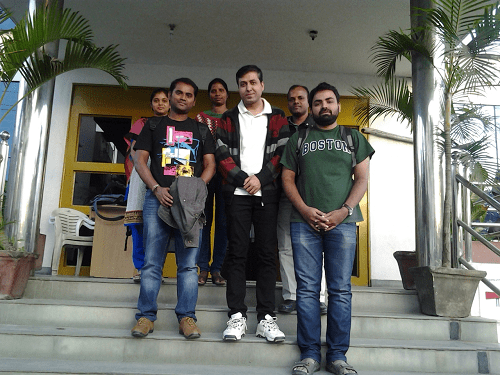
Course Name
Linux Internals & Debugging Training for System Administrators, Devops, Cloud and Hadoop Professionals
Course Overview
Linux Internals and Debugging training course is meant for Linux System Administrators, Devops, Cloud and Hadoop Professionals. The course is a coverage on Linux Internals which is useful for System Administrators who are already working in Linux and doing day to day job of troubleshooting and identifying issues in their environment. The course will help them understand the issues much deeper and help them troubleshoot the problem more effectively before passing it on to the development team. The course will also help Sys-Admins in interfacing with the Engineering and Development Teams much more productively.
Course Delivery
- The course will be delivered by our Founder & CTO who is an Expert with 20+ years of experience in Linux Kernel and SAN software development.
- 50% Theory, 50% Lab
- Hands-On – Lab exercises and Assignments on Linux Internals, Debugging & Troubleshooting and Crash Analysis
- Location: Sanfoundry Institute, Bangalore, India
Course Duration
2 days
Target Audience
- Professionals who want to learn and Master Linux Systems and Troubleshoot Issues
- Applicable for All – Linux Administrators and L1/L2/L3-Support Professionals
- Professionals moving from Microsoft Windows platform to Linux Environment
- Professionals moving from other Unixes (IBM AIX, Oracle Solaris, HP’s HPUX) to Linux Environment
- Professionals who have completed RHEL – Redhat System Administration Certifications
- Professionals who have completed Ubuntu System Administration Certifications
- Professionals who have completed LPIC-1 / LPIC-2 / LPIC-3 Certification & CompTIA Linux Certifications
- Professionals / #Devops Folks who are working in #Cloud, Big Data and #Hadoop Environment
Course Pre-requisite
Basic Linux/Unix Administration Knowledge is Required
Fee, Schedule & Registration
Click Here for Linux Internals and Debugging Training for System Administration schedule, fee and registration information.
Outline of Linux Internals and Debugging Training for System Administrator
|
Linux Kernel Introduction Linux System Linux Organization Linux Version Basic OS Concept Linux N+1 System Linux Filesystem File Types Processes & File Objects File Object Access The Process/Kernel Model Re-entrant Kernel Interleaved Kernel Control Paths Preemptive Kernel Preemptive Context Switch Synchronization Deadlock Memory Management Memory Addressing Processes in Linux Kernel Process Scheduling advertisement
Signals in Linux |
Process Focus Viewing Processes Process Tree & Process Status Identifying System & Daemon Processes Foreground and Background Processes Tuning Process Scheduling Process Priority nice & renice commands Killing / Terminating a Processes Max Processes per User – ulimit Per Process Resource Limits Stack Sizes Core File Limits IPCs Consumption and Limits Process Internals System Focus Troubleshooting Methods advertisement
GDB Debugging Linux Kernel Crash Dump Analysis |
